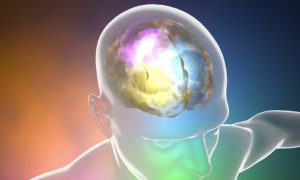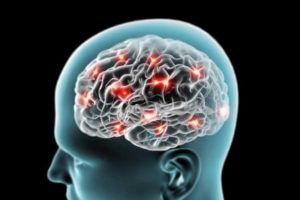Epilepsy Samples
Bay Biosciences provides high quality, clinical grade bio-samples, cryogenically preserved tissue samples, FFPE tissue blocks with matched sera (serum), plasma and peripheral blood mononuclear cells (PBMC) biofluid specimens from patients diagnosed with Epilepsy disorder.
The sera (serum), plasma and PBMC biofluid samples are processed from patient’s peripheral whole-blood using customized processing and collection protocols. The human Epilepsy disorder bio-specimens are collected from unique patients diagnosed with Epilepsy and are provided to a valued pharmaceutical customer for genomics, proteomics, biomarkers research, development and drug discovery.
Epilepsy Disease Overview
Epilepsy is a Central Nervous System (CNS), neurological, chronic disorder in which brain activity becomes abnormal, causing unprovoked, recurrent seizures or periods of unusual behavior, sensations, and sometimes loss of awareness. A seizure is a sudden rush of electrical activity in the brain, usually defined as a sudden alteration of behavior due to a temporary change in the electrical functioning of the brain. Normally, the brain continuously generates tiny electrical impulses in an orderly pattern. These impulses travel along neurons, which are the network of nerve cells in the brain, and throughout the whole body via chemical messengers called neurotransmitters. In Epilepsy disease, the brain’s electrical rhythms have a tendency to become imbalanced, resulting in recurrent seizures. In patients with seizures, the normal electrical pattern is disrupted by sudden and synchronized bursts of electrical energy that may briefly affect their consciousness, movements or sensations.
Types of Seizures
There are two main types of seizures;
Primary Generalized seizures, and Partial seizures.
Generalized seizures affect the whole brain. Focal, or partial seizures, affect just one part of the brain.
The difference between these types of seizures is how they begin. Primary generalized seizures begin with a widespread electrical discharge that involves both sides of the brain at once. Partial seizures begin with an electrical discharge in one limited area of the brain. Epilepsy in which the seizures begin from both sides of the brain at the same time is called primary generalized epilepsy.
Stronger seizures can cause spasms and uncontrollable muscle twitches, and can last a few seconds to several minutes. During a stronger seizure, some patients become confused or lose consciousness, afterward they may have no memory of it happening. Epilepsy disease affects both males and female patients of all races, ethnic backgrounds and ages, anyone can develop epilepsy.

Symptoms of Epilepsy
Epilepsy is caused by abnormal activity in the brain, seizures can affect any process that the brain coordinates. Seizure signs and symptoms may include:
- Temporary confusion
- A staring spell
- Uncontrollable jerking movements of the arms and legs
- Loss of consciousness or awareness
- Psychic symptoms such as fear, anxiety
Symptoms vary depending on the type of seizure. In most cases, a patients with epilepsy will tend to have the same type of seizure each time, so the symptoms will be similar from episode to episode.
Focal seizures
When seizures result from abnormal activity in just one area of the brain, they’re called focal (partial) seizures. These seizures fall into two categories:
- Focal seizures without loss of consciousness: These seizures don’t cause a loss of consciousness. They may alter emotions or change the way things look, smell, feel, taste or sound. They may also result in involuntary jerking of a body part, such as an arm or leg, and spontaneous sensory symptoms such as tingling, dizziness and flashing lights.
- Focal seizures with impaired awareness: These type of seizures involve a change or loss of consciousness or awareness. During a complex partial seizure, patients may stare into space and not respond normally to the surrounding environment or perform repetitive movements, such as hand rubbing, chewing, swallowing or walking in circles.
Symptoms of focal seizures may be confused with other neurological disorders, such as migraine, narcolepsy or mental illness. A thorough examination and testing are needed to distinguish epilepsy from other disorders.
Generalized Seizures
Seizures that appear to involve all areas of the brain are called generalized seizures. Following types of generalized seizures exist.
- Absence Seizures: Absence seizures often occur in children and are characterized by staring into space or subtle body movements such as eye blinking or lip smacking. These seizures may occur in clusters and cause a brief loss of awareness.
- Tonic Seizures: Tonic seizures cause stiffening of the muscles, these type of seizures usually affect muscles in the back, arms and legs and may cause patient to fall to the ground.
- Atonic Seizures: Atonic seizures, also known as drop seizures, cause a loss of muscle control, which may cause the patient to suddenly collapse or fall down.
- Clonic Seizures: These type of seizures are associated with repeated or rhythmic, jerking muscle movements, these seizures usually affect the neck, face and arms.
- Myoclonic Seizures: Myoclonic seizures usually appear as sudden brief jerks or twitches of the arms and legs.
- Tonic-Clonic Seizures: These type of seizures are the most dramatic type of epileptic seizure and can cause an abrupt loss of consciousness, body stiffening and shaking, and sometimes loss of bladder control or biting of tongue.

Causes of Epilepsy
Epilepsy disease has no identifiable cause in most patients with this condition but in some of the patients with Epilepsy may be traced to the following factors:
- Genetic Influence: Some types of epilepsy, which are categorized by the type of seizure the patients experience or the part of the brain that is affected, run in families. In these cases, it’s likely that there’s a genetic influence. Researchers have linked some types of epilepsy to specific genes, but for most patients, genes are only part of the cause of epilepsy. Certain genes may make a person more sensitive to environmental conditions that trigger seizures.
- Head Trauma: Head trauma as a result of a car accident or other traumatic brain injury can cause epilepsy.
- Brain Conditions: Brain conditions that cause damage to the brain, such as brain tumors (cancers)
or strokes, can cause epilepsy. Stroke is a leading cause of epilepsy in adults older than age 35. - Infectious Diseases: Infectious diseases, such as meningitis, AIDS and viral encephalitis, can also cause epilepsy.
- Prenatal Injury: Before birth, babies are sensitive to brain damage that could be caused by several factors, such as an infection in the mother, poor nutrition or oxygen deficiencies. This brain damage can result in epilepsy or cerebral palsy.
- Developmental Disorders: Epilepsy can sometimes be associated with developmental disorders, such as autism and neurofibromatosis.

Detailed clinical data, elevated levels of antibodies, serology, biomarkers, high density EEG Electroencephalogram, CT, urogram scan, PET, SPECT, genetic information, urine cytology, biopsy tissue, pathology annotations associated with the Epilepsy disorder patient’s specimens is provided to a valued customer for research, development and drug discovery. The Epilepsy disorder PBMC, sera (serum) and plasma biofluid samples are processed from patients peripheral whole-blood using customized collection and processing protocols provided by the researcher.



